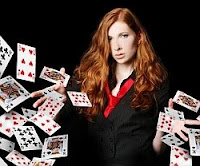Peer-Rejection, Ridicule and Bullying: Help For Aspergers Children

Though they want to be accepted by their friends, Aspergers children tend to be very hurt and frustrated by their lack of social competency. Their inability to “connect" to others is made worse by the negative feedback that Aspergers children receive from their painful social interactions (e.g., bullying, teasing, rejection, etc.). The worse they perform socially, the more negative feedback they get from peers, so the worse they feel and perform. Due to this consistent negative social feedback, many Aspergers children and teens feel depressed, anxious and angry, which just compounds their social difficulties by further paralyzing them in social situations. Click here for help ==> Teaching Social Skills & Emotion Managment

